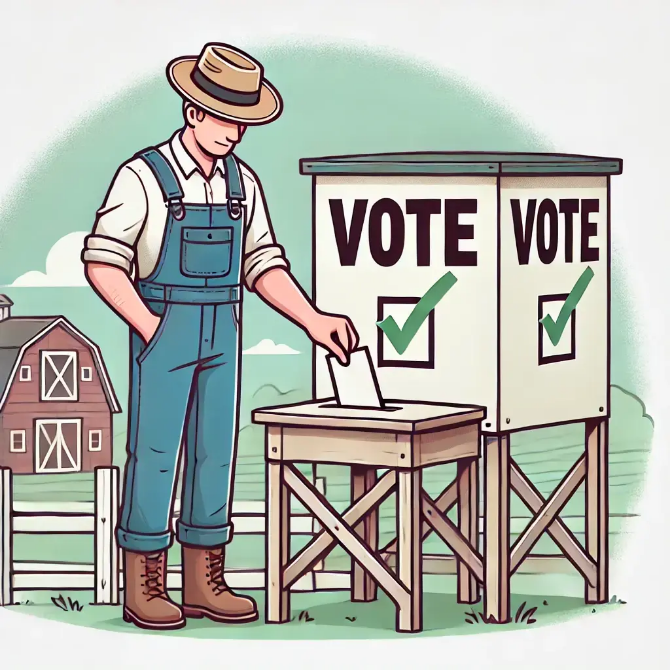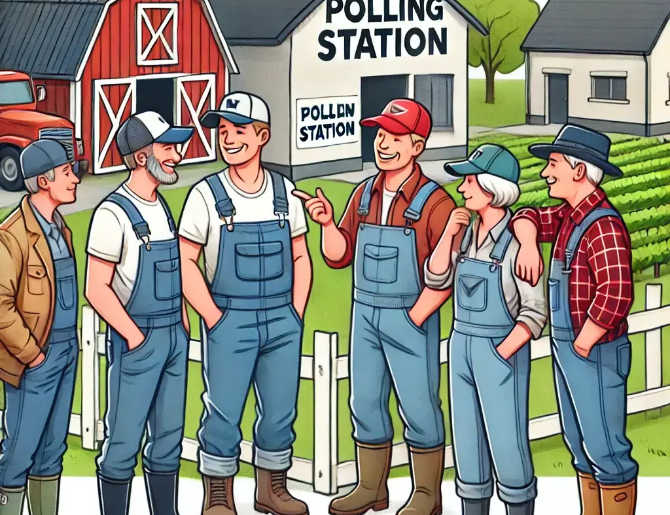Voting can feel overwhelming, especially if you’re someone who doesn’t actively follow politics. With so many candidates and issues to consider, it’s easy to feel out of your depth. But voting is about making your voice heard, and it doesn’t have to be complicated or time-consuming. Here’s a simple guide for those who don’t consider themselves political but still want to participate in this crucial civic duty.
1. Follow Someone You Trust
If you don’t have the time or interest to do your own research, that’s okay. One of the easiest ways to make informed decisions is by following someone you trust. Whether it’s a friend, family member, or public figure whose values align with yours, you can take their lead on voting. Make sure the person you choose is someone who does their own homework and genuinely cares about the issues that matter to you.
2. Look at Trusted Groups and Associations
Another approach is to consider how respected organizations and associations are leaning. Many groups, like nurses’ unions, educators’ associations, or law enforcement coalitions, often endorse candidates who align with their values. If you’re unsure where to start, take a look at the organizations you admire and see where they’re putting their support.
3. Fact-Check Information
In today’s world of misinformation, it’s critical to ensure the information you’re getting is accurate. Avoid relying solely on social media for political facts. Instead, look to well-established news outlets or nonpartisan fact-checking organizations like FactCheck.org or Politifact. These sources will help you avoid false claims and misinformation during election season.
4. Review Sample Ballots and Voter Guides
Before heading to the polls, take some time to review your sample ballot. Many states and localities provide voter guides that outline candidates and their positions. These resources can give you a clearer understanding of who’s running for what and where they stand on the issues, without requiring deep research. It’s a simple way to see what’s at stake and to prepare yourself for the ballot box.

5. Focus on Local Impact
Sometimes national politics can feel far removed from daily life, but local and state elections often have a direct impact on your community. Decisions about schools, hospitals, public safety, and infrastructure are often made at the state or local level. Even if you don’t feel strongly about national politics, voting in local elections can shape the community you live in.
6. Take Your Time with Early Voting or Voting by Mail
If voting at a polling station feels too rushed or stressful, consider early voting or voting by mail (if available in your area). These options allow you to take your time, do some research if needed, and ensure you feel comfortable with the decisions you’re making.
7. Don’t Be Afraid to Leave Some Sections Blank
It’s perfectly okay not to fill out every section of your ballot. If you’re unsure about a particular candidate or issue, you can skip it rather than making an uninformed choice. Voting only for the issues and candidates you feel confident about still counts and helps make your voice heard.
8. It’s About Values, Not Party
At the end of the day, voting isn’t just about aligning yourself with a political party. It’s about choosing candidates and supporting policies that reflect your values—whether those values are centered on healthcare, the environment, economic stability, or social justice. Focus on what matters to you and find candidates who share those concerns.







Comments are closed.